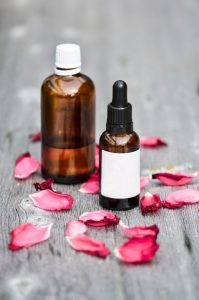There has been some talk about copper peptides and their supposed “miracles” on improving the skin’s texture, appearance and general health. But is it true that copper peptides work against a variety of skin conditions, including scars and signs of aging?
Before getting to the answers, first what exactly are copper peptides? This article attempts to define copper peptides in a way that laymen can understand.
Generally speaking, peptides are protein molecules that are small enough to penetrate the skin’s protective barriers to get to the deeper layers. Certain types of peptides naturally bind very tightly with copper and the result is a compound consisting of a peptide and a copper atom which has become known as a “copper peptide.” Copper peptide was invented in the 1970s by a biochemist named Dr. Loren Pickart who was also the founder of ProCyte and Skin Biology.
So basically, copper peptides allow us to increase the copper levels in our skin by applying a cream topically on it. This sounds improbable because we think of copper as metal: but then, there are other metals such as iron, manganese, zinc and calcium that are beneficial to our body.
The reason that we want copper be delivered to our skin in the first place? Well, it turns out that copper peptides can have a positive effect on wound healing. Copper peptides help in minimizing scar tissue formation while stimulating normal skin remodeling. In other words, they help in restoring the damaged area of the skin and restoring the skin into its original look, texture, and elasticity. Apart from that, copper peptides have anti-inflammatory properties and also help in reducing skin inflammation.
Upon learning about copper peptides, you may be too excited to rush out to the nearest beauty store and hoard lots of copper peptide beauty products.
But, not so fast!
Do copper peptides work on aging skin?
What is proven about copper peptides is that they have the ability to repair and heal damaged skin. But the big question is: are copper peptides also good in skin that is not damaged? For example, aging skin that is sagging and has wrinkles and fine lines. Does aging skin share the same properties that benefit from delivering copper into them?
The facts
In a January 2004 edition of Aesthetic Surgery Journal, it concludes that: “the science supporting wound healing with copper peptide is sound but the science supporting supporting amelioration of skin aging is weak, lacking good double-bind comparison studies.”
Looking into Dr. Pickart’s several published studies on SkinBiology’s website as well as other works, they are chiefly regarding wounds, and not wrinkles, with relatively smaller sample sizes, and no discussion of clinical significance.
In another article, “Are Peptides Important Ingredients?” a woman in her 40’s asked whether peptides can help reverse her skin aging signs. The response she got is that while there was some evidence of an increase in skin thickness in a certain study, it is inconclusive. “no one seems to be really sure if these peptides are effective in regular skin creams or not. In fact, while they [copper peptides] look promising, there’s some evidence to suggest that when used improperly, copper peptides can have a negative effect on skin by triggering free radical damage.”
So the conclusion: scientific evidence about copper peptides having anti-aging properties seems to be somewhat insufficient.
However (at least in theory) copper peptides do work in healing wounds and preventing the formation of scar tissue.

